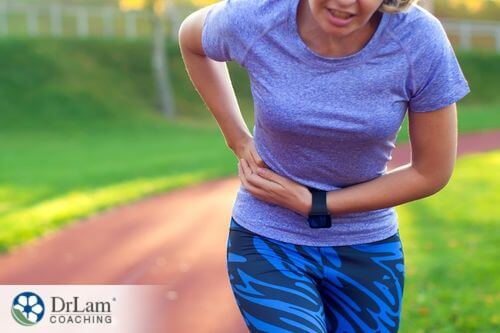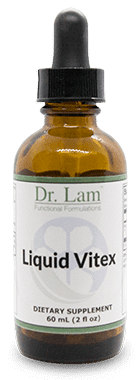 Professional athletes train hard. They spend hours a day working at becoming the best in their field. This may come with a price, however, especially in the case of female athletes. Rigorous training may result in female athletes expending more energy than what they consume from the food they eat. This may not only result in an exceptionally low body fat percentage, but also affect their hormones and menstrual cycle. This is why proper female athlete menstruation support is so important. Providing proper support may help promote a healthy menstrual cycle and address any hormone issues that may crop up due to intensive training.
Professional athletes train hard. They spend hours a day working at becoming the best in their field. This may come with a price, however, especially in the case of female athletes. Rigorous training may result in female athletes expending more energy than what they consume from the food they eat. This may not only result in an exceptionally low body fat percentage, but also affect their hormones and menstrual cycle. This is why proper female athlete menstruation support is so important. Providing proper support may help promote a healthy menstrual cycle and address any hormone issues that may crop up due to intensive training.
A woman’s body is biologically different from that of a male. Yet in the world of sports, research has tended to focus on male athletes. As a result, female athletes have been subjugated to the same training standards as their male counterparts.
Yet, because of the biological differences between males and females, the two sexes have different needs when it comes to optimal performance. As a result, new research focuses on how to use female menses as a way of improving female performance by optimizing training. Proper diet and making allowances for hormone fluctuations resulting from the menstrual cycle may improve a female athlete’s performance.
Your body uses hormones as a means of communication. Traveling to various parts of your body, hormones play a role in many body functions. These include the following:
The symptoms of a hormone imbalance may vary from one individual to the next because each of us is subject to different circumstances. The symptoms of a hormone imbalance in a female athlete may thus differ from those of a female lawyer, for example.
Your particular symptoms can be linked to your body’s response to stress. We refer to this response as the NeuroEndoMetabolic (NEM) stress response, a natural, automatic response governing various body circuits and organs when experiencing stress of any kind. Your body can see excessive training or an unbalanced diet as stressors.
A stressor, in the long term, may cause adrenal fatigue. This arises due to long-term stress causing a constant demand for the production of higher-than-normal cortisol levels. Your adrenals may become fatigued. Also, the constant demand for elevated cortisol production comes at a price as it results in a decrease or imbalance in the production of other needed hormones. Adrenal fatigue combined with hormone imbalance may play havoc on various body processes and give rise to a variety of symptoms. These include dysregulation of your menstrual cycle, which may impact fertility and promote fatigue, brain fog, blood pressure issues, and even a loss in bone density. The latter is prevalent in women who have gone through menopause. It can also affect athletes.
Women in their childbearing years all have to contend with PMS (premenstrual syndrome) in one way or another. Some may experience physical discomfort that could include cramps, bloating, and breast tenderness. For others, it is more of a mental challenge where they may experience mood swings, irritability, depression, or even food cravings. In many, it is a combination. The lucky few may experience very few or none of these symptoms.
 Female athletes with physical PMS symptoms may find it difficult to perform during certain times of the month. Cramps while having to try and outperform others already puts you at a disadvantage, for example. Studies on the need for female athlete menstruation support have made a few startling discoveries.
Female athletes with physical PMS symptoms may find it difficult to perform during certain times of the month. Cramps while having to try and outperform others already puts you at a disadvantage, for example. Studies on the need for female athlete menstruation support have made a few startling discoveries.
The various stages of your menstrual cycle may determine your proclivity for certain injuries. Female athletes tend to experience more knee injuries during the first half of the menstrual cycle, for example. However, research does not indicate that a female athlete’s performance increases or decreases during the different menstrual cycle stages.
Unfortunately, many female athletes fall prey to the Female Athlete Triad.
The Female Athlete Triad is a coined term referring to the physiological function impairment often experienced by female athletes. It invovles three related problems in female athletes: low energy due to not getting enough calories, loss of menses, and low bone density. It could affect menstrual function, cardiovascular health, metabolic rate, immune system function, protein synthesis, and bone health. In other words, a woman's body may not have the energy needed to support its ongoing, high-energy output. And if this state continues over an extended period, she may see a host of health issues developing. These could include the following:
These are both symptoms and causes of adrenal fatigue.
Many female athletes experience a loss of menses or experience irregular periods. We refer to this as athletic amenorrhea.
A female athlete suffers from athletic menorrhea when she has no periods for three months or she experiences heavy, irregular periods four or fewer times per year. The causes include the following:
If not addressed, a female athlete may increase her risk of the following conditions:
Many female athletes hate having to deal with periods, especially when they need to take part in competitions, and feel it detracts from their performance ability. They have found a novel way to get around this.
Many female athletes make use of contraceptives to skip periods on purpose. Those using four-week oral contraceptives skip the last week’s placebo pills and start a new pack. Those using the birth control ring may change it either every four weeks or on the same day each month. Both these methods will help them skip periods, although breakthrough periods may occasionally occur with the latter.
The advantages of skipping periods include:
Another advantage of this method of dealing with periods is that periods will start once you stop using these contraceptives.
Do note, however, that the hormones in contraceptives may interfere with your body’s estrogen and testosterone levels and could cause mineral deficiencies. Vitamin B 12 and magnesium, for example, play a role in muscle building and your body’s ability to recover after exercise. Higher testosterone levels promote strength building and muscle mass development.
 To adequately supply female athlete menstruation support, your diet needs to consider the female menstrual cycle. A female’s constantly fluctuating hormones affect different biological processes.
To adequately supply female athlete menstruation support, your diet needs to consider the female menstrual cycle. A female’s constantly fluctuating hormones affect different biological processes.
Using diet as a means of female athlete menstruation support involves consuming certain nutrients according to the phase of your menstrual cycle. This may help promote optimal health and performance.
The days during which menstruation takes place could result in the loss of blood impacting iron, vitamin B12, and zinc levels. You can counteract this by consuming foods high in these nutrients.
Your body’s carbohydrate consumption and oxidation process are both higher during the follicular phase as compared to the luteal phase. You can increase your energy levels by eating more carbohydrates at this time.
The luteal phase with its high estrogen levels involves a higher percentage of fat utilization and oxidation. You should thus focus on consuming foods high in unsaturated fats like omega-3 fatty acids. Examples of these include mackerel, sardines, and salmon.
The decrease in amino acid levels one sees during this phase could relate to an increase in progesterone levels. You should thus also increase your protein consumption during this time.
Lastly, the luteal phase sees a large reduction in serotonin and mood-enhancing precursor neurotransmitters. This could increase your risk of presenting various PMS psychological symptoms. Upping your vitamin B6 intake may help increase serotonin and sex hormone production. Increasing your vitamin D intake may also help reduce your PMS symptoms because of its role in synthesizing serotonin.
A female athlete should also strive to consume foods high in antioxidants. An antioxidant imbalance could promote oxidative stress which, in turn, could worsen PMS symptoms.
Traditionally, training programs for women are based on those used for men. They do not take a woman’s biological differences into account. Yet research indicates that you can use a woman’s menstrual cycle in such a way that it will ultimately enhance her athletic performance. To do so, you need to consider the hormone fluctuations and the changes in her body throughout her menstrual cycle.
The follicular phase has a higher estrogen output and lower progesterone levels. A female athlete can concentrate on strength and endurance training during this time.
The luteal phase, on the other hand, with its higher progesterone levels, should be reserved for low-frequency training that focuses on muscle strength enhancement.
Another factor to take into consideration is thermoregulation. Your body sees a higher basal body temperature during the luteal phase, which may impact your performance. Any exercise that lasts long during this period may add to your cardiovascular load. As your body’s basal temperature is lower during the follicular stage, long-term exercise is best during this time. The impact on your cardiovascular load would also be lower.
 Natural fertility tracking has come a long way and proves a great alternative to manufactured contraceptives and their side effects.
Natural fertility tracking has come a long way and proves a great alternative to manufactured contraceptives and their side effects.
The most common natural tracking method to provide female athlete menstruation support has to do with your daily basal body temperature. Your basal body temperature rises after ovulation. Many apps help you record temperature changes to help you know exactly where your body is at during your menstrual cycle. Knowing this can help you understand your body and give you a good indication of what foods you should concentrate on and the exercise best suited during a specific period.
Liquid Vitex, also known as Chasteberry, is a herbal supplement that is often used to support female hormonal balance, which can be particularly beneficial for women athletes. Intense physical training can sometimes lead to irregularities in menstrual cycles, a condition known as exercise-induced amenorrhea. Vitex works by influencing the hypothalamus and pituitary glands, which in turn helps to regulate and balance the levels of estrogen and progesterone in the body. This can be especially helpful for female athletes who experience irregular periods or other menstrual disturbances due to the high levels of physical stress and changes in body composition associated with rigorous training. By promoting a more balanced hormonal environment, liquid Vitex can aid in normalizing menstrual cycles, thus contributing to overall reproductive health. Additionally, a balanced hormonal state can positively impact other aspects of well-being, such as mood and energy levels, which are crucial for athletic performance. However, it's important to note that while Liquid Vitex can be beneficial, it should be used under the guidance of a healthcare professional, especially for athletes, to ensure it is appropriate for their specific health needs and does not interfere with their training and performance.
There are ways to provide female athlete menstruation support in such a way that an athlete can enhance her performance. But this takes an understanding of how a woman’s body works, what to eat and when to eat it, and the best exercise during these specific periods.
If you would like to know more about female athlete menstruation support, the team at Dr. Lam Coaching can help you. We offer a free** no-obligation phone consultation at +1 (626) 571-1234 where we will confidentially address any questions or concerns you may have. You can also send us a question through the Ask The Doctor system by clicking here.

Help balance hormones naturally
Proper female athlete menstruation support can help improve adrenal fatigue symptoms in female athletes because it addresses many issues associated with the condition. These include hormone imbalance as well as dietary insufficiencies. Your healthcare professional can help you with these issues as well.